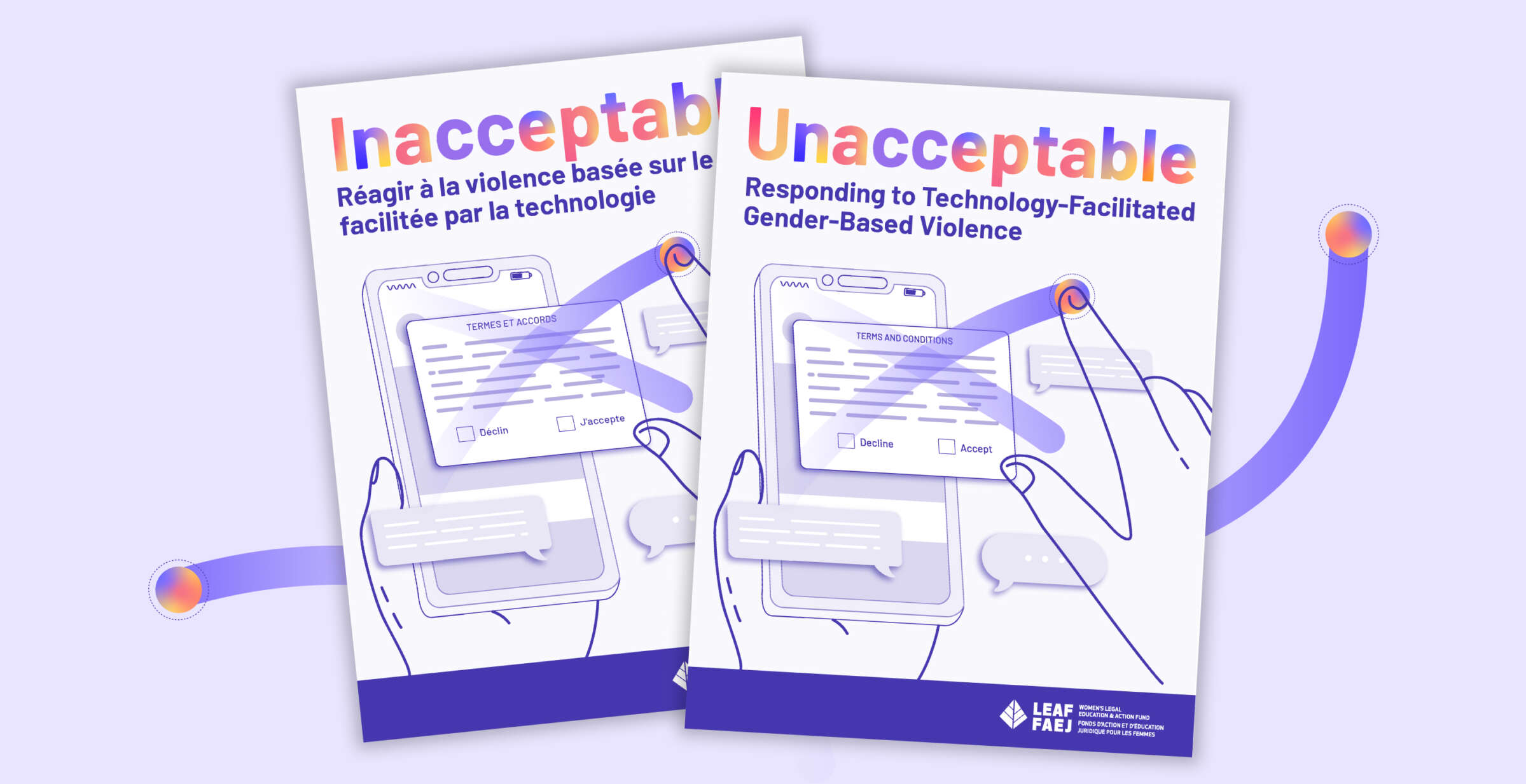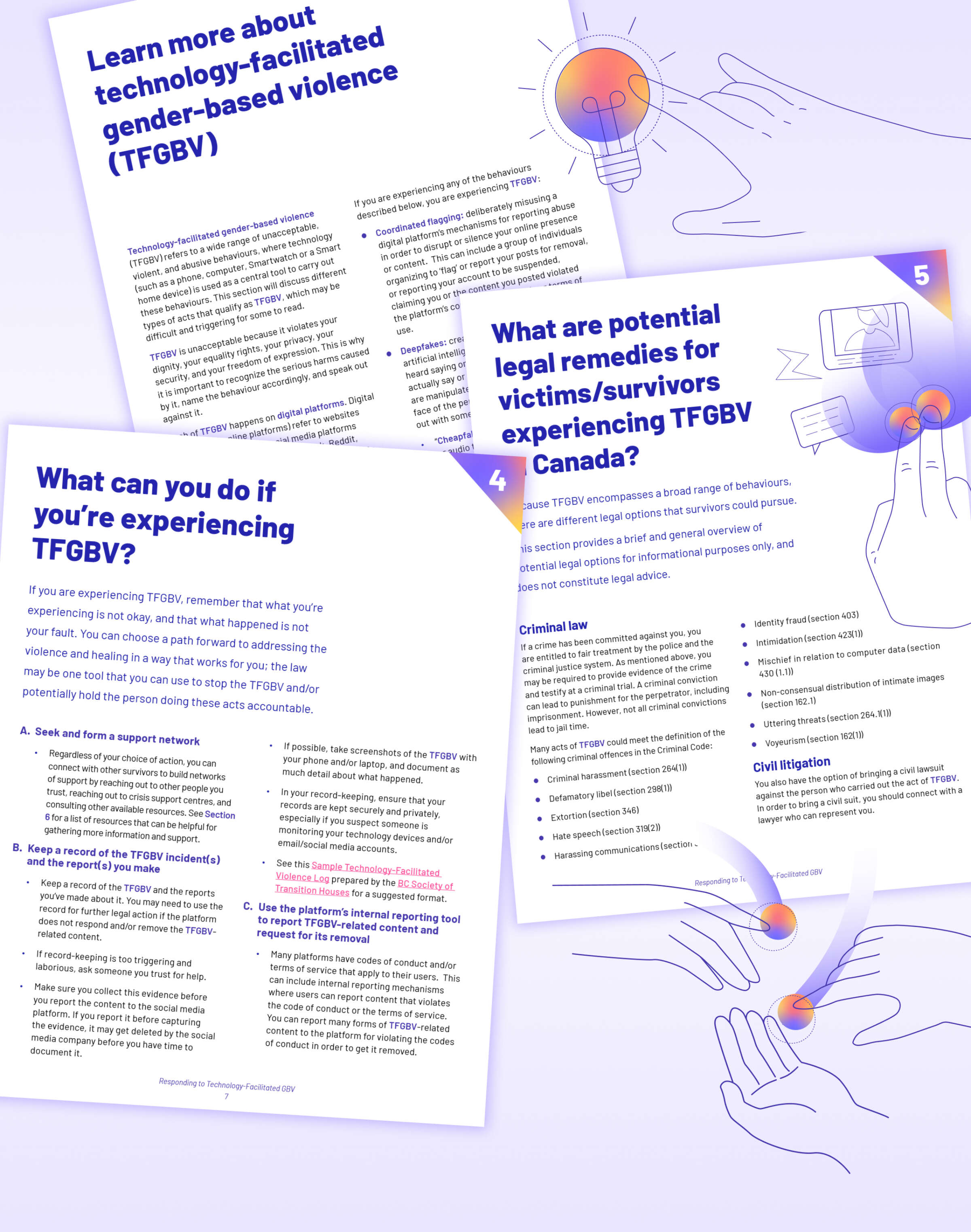Unacceptable: Responding to Technology-Facilitated Gender-Based Violence
Client
Year

The Women’s Legal Education and Action Fund (LEAF) is a national charitable organization working towards advancing equity for women through the law.
In early 2021, LEAF produced a report, Deplatforming Misogyny, which examined digital platform liability for technology-facilitated gender-based violence, abuse, and harassment (“TFGBV”). The report speaks to the role digital platforms play in abuse, including but not limited to doxing, stalking, trolling, coordinated harassment, and the non-consensual sharing of intimate images, and includes 14 recommendations for federal government action and legal reform.
The Need
LEAF partnered with us to adapt the report for more widespread distribution, our goals were to:
- centre the experiences of survivors of TFGBV, validating and drawing connections between their experiences and legal frameworks; and
- adapt the content for legal professionals who can work on behalf of survivors seeking support through the law.

The Approach
After engaging in a visioning process with LEAF, reviewing the materials to-date, and drawing from our own experiences working directly with survivors of gender-based violence, we proposed an approach that re-centres the agency of survivors, and pushes back against the act of “accepting” terms and conditions:
The Idea
Unacceptable
The law provides survivors with one tool, of many, to regain a sense of power and agency after experiencing TFGBV. The idea of agency in digital spaces is complex; we are often presented with the illusion (or performance) of consent through “accepting” terms and conditions, without the tools necessary to unpack the implications of those terms and conditions. The notion of consent is further complicated as participation in digital spaces is becoming inextricable from our participation in civil society more broadly.
Through its work on TFGBV, LEAF is reminding survivors that regardless of the terms and conditions laid out in digital spaces, TFGBV is never ok, and is unacceptable. This approach plays with the language of acceptance, reminding survivors that we do not need to accept violence as a cost of participation in these, or any space.

The visual approach re-introduces a sense of agency to survivors, reminding us that we can assert our right to safety and dignity in digital spaces, and we do not need to “accept” anything less. The visual language of “gestures” and “movement” combined with toggles, buttons, and screens, remind all of us that we have choice and can map our next steps.
Access the downloadable, survivor-centric guide, and read more about the project here.

How do you want to change the world and how can we help?
Let’s Connect